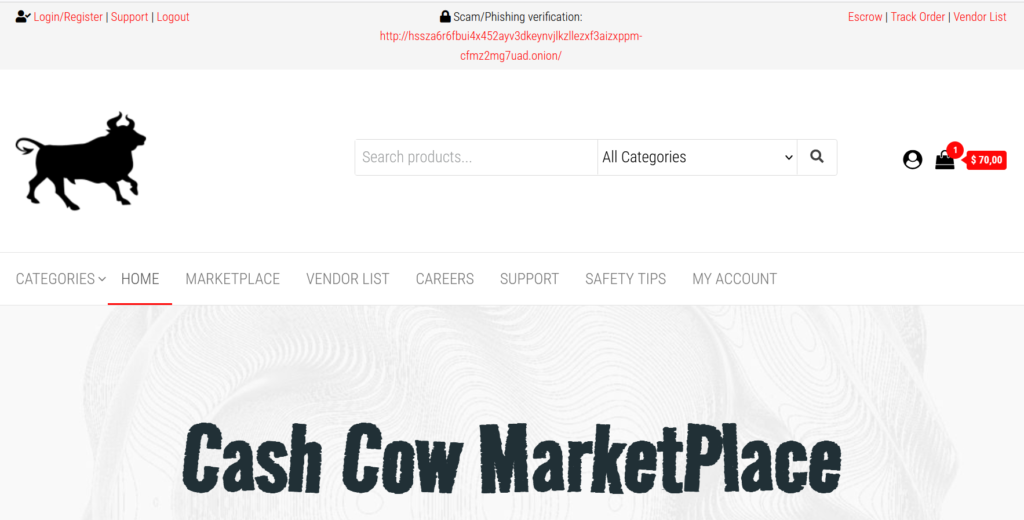Table of Contents
ToggleCash cow – TOR Scam Report (2)
Onion Link: http://hssza6r6fbui4x452ayv3dkeynvjlkzllezxf3aizxppmcfmz2mg7uad.onion
Scam Report Date: 2024/08/18
Client Scam Report Breakdown
Original Report Summary:
Scam Report Summary: A customer reported a scam involving the Cash Cow Marketplace, where they placed an order, transferred cryptocurrency as payment, and received an email receipt. However, they never received the purchased goods. The customer claims that the escrow service advertised by the platform is fake, as they were unable to retrieve their funds. Additionally, the 24/7 customer support promised by the platform was unresponsive. This report raises serious concerns about the legitimacy of the marketplace, especially its claims of buyer protection and customer service.
Detailed Analysis: The original scam report states: “Made an order, sent the coin, received an email receipt, and never received anything else. The escrow is a lie, and the 24/7 support is too.” This report highlights several key issues: first, the failure of the platform to deliver the purchased item; second, the alleged falsification of the escrow service, which is supposed to protect buyers; and third, the lack of response from customer support. The buyer protection system, which typically involves an escrow mechanism, is designed to hold funds until the buyer confirms receipt of the goods. In this case, the escrow service did not function as intended, leading to the buyer’s loss of funds.
The terminology used in the report, such as “escrow” and “coin,” is crucial to understanding the nature of the scam. Escrow is a financial arrangement where a third party holds and regulates payment between two parties involved in a transaction, ensuring the security of the payment until the transaction is complete. Coin refers to cryptocurrency, the digital or virtual currency used as a medium of exchange on the Cash Cow Marketplace. The customer’s reference to “sent the coin” indicates they transferred cryptocurrency as payment. The failure of the escrow service and customer support, as described in the report, suggests that the marketplace may be fraudulent, potentially designed to exploit buyers by offering fake protections and services.
Conclusion: This scam report suggests that the Cash Cow Marketplace might be engaging in fraudulent activities by advertising false security measures like escrow and 24/7 support to attract and deceive buyers. The lack of product delivery and the platform’s unresponsiveness to customer complaints are significant red flags. Customers are advised to exercise extreme caution when dealing with online marketplaces, particularly those that operate on the dark web, where accountability and legal recourse are often limited. This case underscores the importance of verifying the legitimacy of platforms before engaging in transactions, especially when dealing with cryptocurrencies, which are often irreversible.






